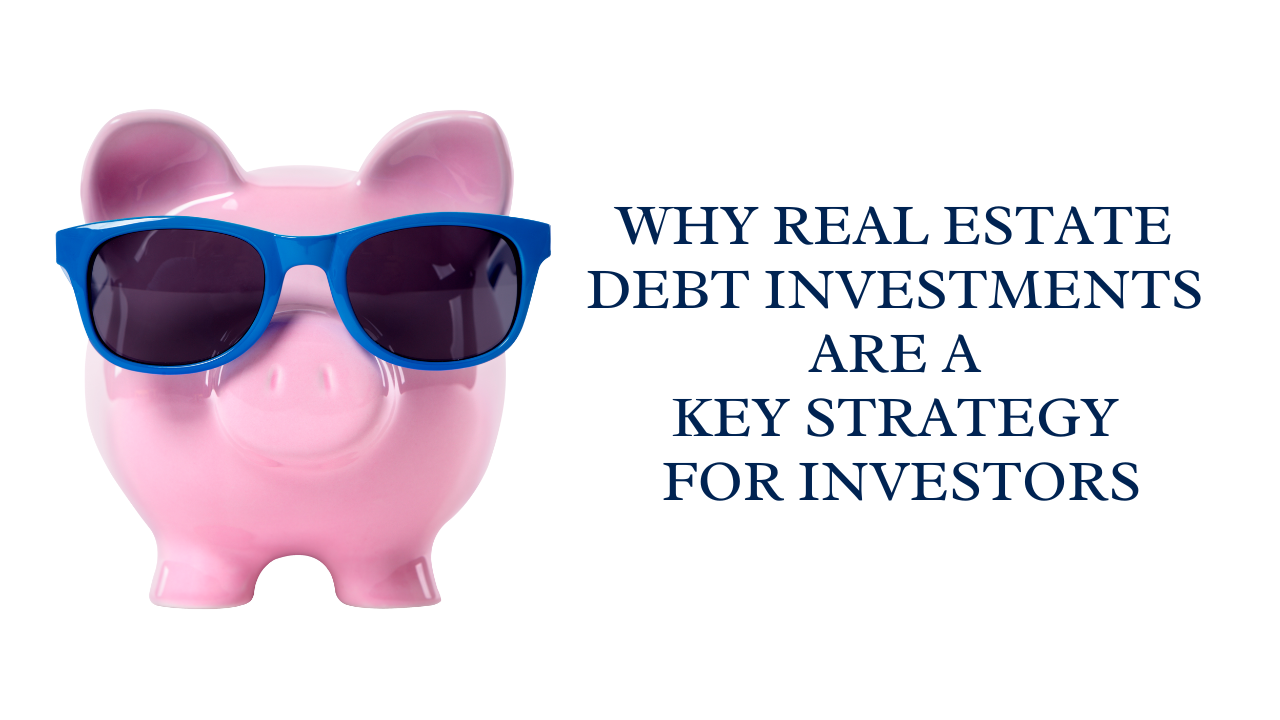Why Real Estate Debt Investments Are Gaining Momentum Among Real Estate Investors

I’ve been noticing a significant shift in the strategies of many real estate investors—and it’s all about real estate debt investments. More and more groups are focusing on debt as a key strategy for financing real estate projects, and this trend is picking up steam. If you're a real estate investor looking for ways to diversify your portfolio or reduce risk, this is something you should be paying attention to.
1. Banks Are Pulling Back on Real Estate Lending
One of the primary drivers of the growing popularity of real estate debt is the retreat of traditional bank lending. With stricter regulations and higher capital requirements, banks are becoming more cautious about lending for both commercial and residential real estate. This has created a lending gap in the market, and debt funds have stepped in to fill this void. For real estate investors, this means more opportunities to get involved in lending, rather than just focusing on equity stakes.
2. Changing Market Conditions Create Opportunities for Real Estate Debt Investments
The current market conditions are also making real estate debt particularly attractive. With high interest rates, debt investments offer competitive yields that are appealing to many real estate investors. Additionally, there’s a large volume of maturing debt, and many property owners are struggling to refinance their loans due to declining property values in certain sectors. These challenges are creating a funding gap, which presents real estate investors with an opportunity to provide much-needed capital solutions through debt.
The refinancing environment has also opened up opportunities in different areas of the capital stack, such as mezzanine financing, rescue capital, and distressed debt. These strategies allow real estate investors to deploy capital at various levels of the deal, giving them more flexibility and a better chance to generate returns while managing risk.
3. Private Credit Growth: A Key Trend for Real Estate Investors
Another significant trend contributing to the rise of real estate debt is the growth of private credit. Over the past few years, private real estate debt has outpaced the broader private debt sector. For real estate investors, this means that private credit funds are increasingly becoming an attractive option. These funds offer predictable returns and downside protection, which many real estate investors are seeking in today’s unpredictable market.
As institutional investors and family offices seek stable income, private debt is becoming a go-to strategy. For real estate investors, getting involved in private credit offers access to more reliable income streams and an alternative to more volatile equity-based investments.
4. Why Real Estate Debt Could Be a Smart Move
In the current environment, real estate debt investments provide a way for real estate investors to diversify their portfolios and reduce risk, while still earning competitive returns. Debt allows investors to position themselves ahead of the curve by offering solutions where banks and other lenders are pulling back. With predictable income and the ability to be first in line to be repaid, real estate debt investments are becoming an increasingly attractive option for those looking to safeguard their investments in 2025.
Final Thoughts: The Rise of Real Estate Debt Investments
The rise of real estate debt isn’t just a passing trend—it’s a shift that’s reshaping the way real estate investors approach their portfolios. As non-bank lenders and debt funds continue to step up to provide financing solutions, real estate debt is proving to be an essential tool in today’s evolving market.
For real estate investors who want to take advantage of this opportunity, getting involved in debt investments offers a way to earn reliable income, protect against market volatility, and position your portfolio for success in 2025 and beyond.
I’d love to hear your thoughts on the growing role of real estate debt in the market. Feel free to share your insights or ask questions about debt investments!
By Peter Halm

